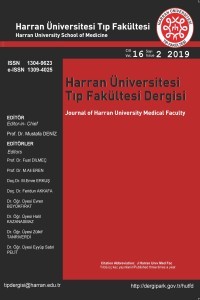
Harran Üniversitesi Tıp Fakültesi Dergisi
Yazarlar: Azize Yasemin GÖKSU
Konular:-
Anahtar Kelimeler:Autoimmune thyroid diseases,Hashimoto’s thyroiditis,Graves’ disease,Microchimerism,Pregnancy
Özet: During pregnancy, bi-directional trafficking of hematopoietic cells occurs through the placenta. Fetal cells are known to reach the maternal circulation and infiltrate a variety of tissues fetal microchimerism . The presence of a small population of cells or DNA in one individual that derives from another genetically distinct person is referred to as microchimerism. In humans, the course and severity of the autoimmune thyroid diseases AITD is well known to beaffected by pregnancy as evidenced by disease suppression during pregnancy and initiation / exacerbation in the postpartum period. Although thyroid autoantibodiesand Graves’ disease itself tend to be suppressed duringpregnancy, a high percentage 8–10 % of women developautoimmune Hashimoto’s thyroiditis or Graves’disease 3–12 months after delivery. Furthermore, AITD affect both fertility and pregnancy outcome and cause fetal loss. However, the mechanisms of this influence have not been fully understood. The clinical similarities between some features of autoimmune diseases and the chronic graft versus host disease, the increased incidence of autoimmune diseases in women after childbearing age, and the long-term persistence of microchimerism in maternal blood / tissues have raised the hypothesis that microchimerism could be involved in the pathogenesis of autoimmune diseases. Here we have reviewed recent information on the possible role of fetal microchimerism in autoimmune thyroid disease
Dergi editörleri editör girişini kullanarak sisteme giriş yapabilirler. Editör girişi için tıklayınız.